Chinese New Year 2026 falls on Tuesday, February 17th, 2026.
Chinese New Year is also called “Spring Festival” and “Lunar New Year” in China. It’s the most important traditional festival in China based on the Chinese lunar calendar. It is when Chinese people get together with their family, say goodbye to the old year, and ring in the new one. If you are planning a China tour during the Chinese New Year, you will experience an auspicious and festive atmosphere. If you travel to China with kids during this period, your kids will be immersed in the authentic, joyful vibe and learn interesting facts about the Chinese Lunar New Year 2026.
When is Chinese New Year 2026 & 2027?
Chinese New Year 2026 falls on Tuesday, February 17th, 2026, and the Chinese zodiac animal for 2026 is the Horse.
Chinese New Year 2027 falls on Saturday, February 6th, 2027. According to the Chinese zodiac cycle, Chinese New Year 2027 is the Year of the Goat.
When is Chinese New Year?
Chinese New Year dates are determined according to the traditional Chinese lunar calendar instead of the Gregorian calendar, which means that the start and end dates of Chinese New Year change each year. Chinese New Year is usually celebrated on the first day of the first month of the lunar year. This date usually falls between late January and late February each year.
What is the Chinese New Year 2026 Zodiac Animal?
According to the Chinese zodiac cycle, 2026 is the Year of the Horse.
In traditional Chinese culture, the Chinese Zodiac has a long history. In a 12-year cycle, Chinese New Year animals are rat, ox, tiger, rabbit, dragon, snake, horse, goat, monkey, rooster, dog, and pig successively. In China, people born in the Year of the Horse are horses.
According to the Chinese lunar calendar, the starting and ending dates for 2026 are from February 17, 2026 to February 5, 2027. If you were born around this time, your Chinese zodiac animal is the Horse.
Besides 2026, other Years of the Horse include 2014, 2002, 1990, 1978, 1966, and 1954. It should be noted that the Chinese zodiac is based on the Chinese New Year calendar. So, people born after the Chinese New Year in these years are horses. If you were born before the Chinese New Year, your Chinese zodiac sign is the snake.
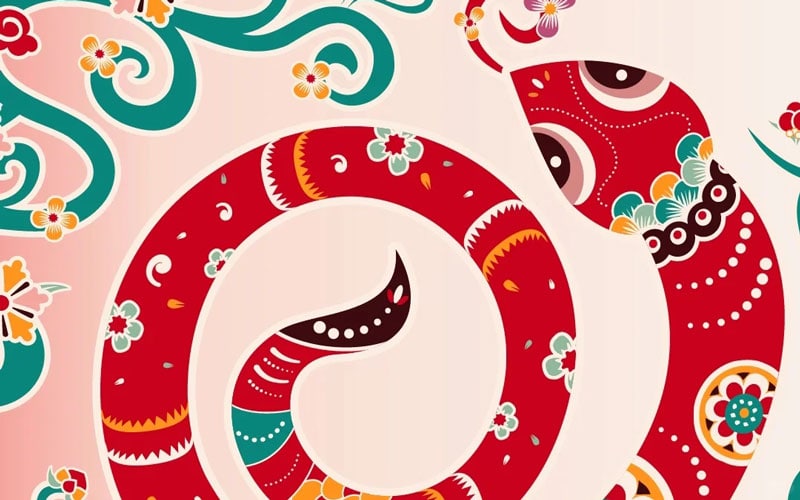
How Long is Chinese New Year 2026?
Generally speaking, when we say Chinese New Year, we don't just mean the first day of the first lunar month, but a festival that lasts a long period. According to Chinese New Year traditions, Chinese New Year celebrations begin on Chinese New Year's Eve and last until the Lantern Festival on the fifteenth day of the first lunar month. So, Chinese New Year usually lasts 16 days.
Here are several notable dates during the Chinese New Year:
Chinese New Year's Eve: It is the day before the Chinese Lunar New Year. Chinese New Year's Eve in 2026 falls on February 16th in the Gregorian calendar. The family will get together and enjoy a family reunion dinner.
Chinese New Year’s Day: It is the first day of the lunar year. People usually pay New Year calls and give and receive red packets (Hongbao) on this day.
Lantern Festival: It is on the 15th day of the first lunar month. The Lantern Festival in 2026 falls on March 3rd in the Gregorian calendar. On this day, Chinese people will enjoy watching beautiful lanterns and eating yuanxiao or tangyuan. The Lantern Festival marks the end of the Chinese New Year celebrations.
Chinese New Year is the longest public holiday in China, a holiday of 7-8 days. According to the holiday arrangements of previous years, the Chinese New Year holiday usually starts on New Year's Eve and lasts until the sixth day of the first lunar month. The public holiday for Chinese New Year 2026 is from February 16th to 23rd, lasting 8 days.
Chinese New Year Traditions & Celebrations
You have learned about when and what the Chinese New Year is. But how do the Chinese celebrate the Chinese New Year? Chinese people celebrate Chinese New Year in various traditional ways. Although it is a little different in some traditions and celebrations across China, the main purpose is to reunite families and welcome the New Year. Let's take a look at the main customs and traditional activities of the Chinese New Year.
Cleaning the house and arranging the decorations: Half a month before Chinese New Year, Chinese families usually clean the house inside and out and decorate the house with red things, such as red lanterns, Spring Festival couplets, “Fu” character pictures, Door Gods picture,s and paper cutting arts.
Doing Spring Festival shopping: Chinese will buy all kinds of food, gifts, and decorations for celebrations and visit relatives and friends during Chinese New Year.
Offering sacrifices to ancestors: Many Chinese will put offerings, like joss sticks and candles, fruit, and fish at the family shrine or cemetery. Then they will light incense and salute their ancestors to express their respect and memory.
Enjoying a family reunion dinner: Chinese New Year is a time for family reunions. On Chinese New Year's Eve, family members will come home from everywhere and get together for a New Year's Eve dinner.
Staying up late on New Year's Eve: On New Year's Eve, families would gather to stay up all night. They may watch the Spring Festival Gala, play mahjong, chat, eat snacks, and welcome the New Year together.
Paying a New Year call and giving red packets: During Chinese New Year, family and friends visit and greet each other to show their concern and blessings for each other. The younger generation will pay New Year’s greetings to the elders and send words of blessing. The elder will give red envelopes (aka red pockets) to them.
Setting off firecrackers and fireworks: Lighting firecrackers after the New Year's Eve dinner is one of the traditional customs. Traditionally, firecrackers are believed to drive away evil spirits and bad luck and welcome good fortune in the New Year.
Watching dragon and lion dance: During Chinese New Year, there are many dragon and lion dances throughout the country. It is an important part of Chinese tradition.
>> Read more details of Chinese New Year Celebrations with day-by-day guideline
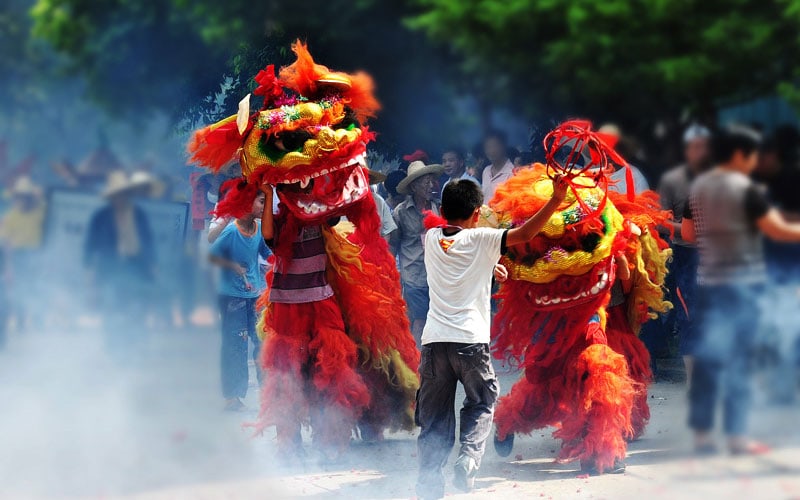
Chinese New Year Decorations
Many Chinese people will decorate their houses before the Chinese New Year, especially on New Year's Eve. Red is the main color of Chinese New Year decorations. In Chinese culture, red is the color of luck and prosperity. Some decorations are related to the color red or the zodiac of the year. Here are some common Chinese New Year decorations:
Red lantern: During Chinese New Year, you will see red Chinese lanterns in many places. They are hung in streets, shops, restaurants, and homes.
Spring Festival couplets: You may see couplets on either side of every door. Generally, Chinese people take down last year's couplets on New Year's Eve and put up a new set. Spring Festival couplets are usually composed of a horizontal scroll and a pair of vertical poetry lines. The content is mostly auspicious words, expressing good wishes for the coming year.
“Fu” character picture: It is written in calligraphy with the word "Fu" (福) on a square of red paper. The word Fu means "fortune and good luck" in Chinese, so Chinese people use it as a decoration for the Chinese New Year. You will find an interesting fact that people sometimes stick it upside down on their doors or walls. Because in Chinese, it means "Fu arrived", which means that fortune is coming.
Door Gods picture: The tradition of pasting Door Gods originated from the folk beliefs of ancient China. Ancient Chinese believed that the Door Gods could guard the house, drive away evil spirits, and bless the family with peace. Chinese people usually paste paintings of Door Gods on the outside of doors. If it is a double door, it is generally pasted on each side of the door.
Paper cutting arts: The paper cutting arts are widely used during Chinese New Year, especially the window paper-cut that is cut into various patterns. Chinese use red paper to cut out a wide variety of designs and stick them on the window. The patterns of the window paper cut are usually based on flowers, animals, historical figures, and words with symbolic meanings.
Kumquat tree: Kumquat trees are a very popular decorative plant during Chinese New Year. Sometimes people hang red ribbons, Chinese knots, small lanterns, and other decorations on kumquat trees, which can add to the festive atmosphere.
>> 16 Chinese New Year Decorations to Bring Good Fortune
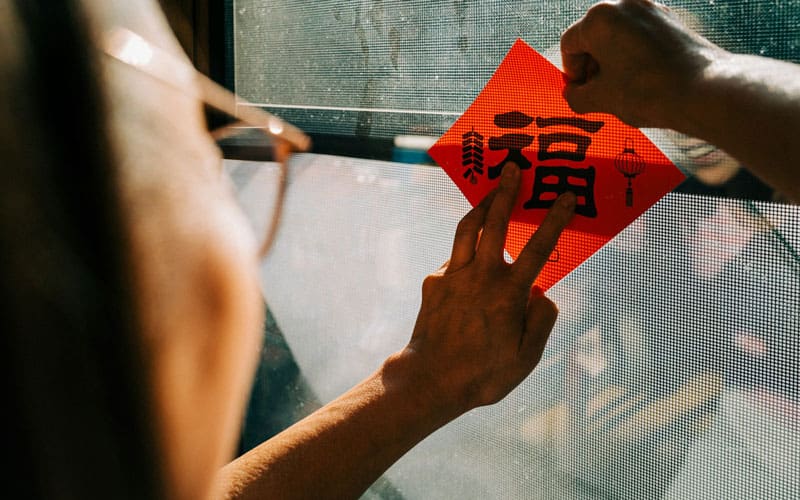
Chinese New Year Food
Fish: Fish is an essential Chinese New Year food. Because “fish” (鱼) and “yu” (余) sound alike in Chinese, which means abundance and surplus every year.
Chinese Dumplings: Dumplings are a must-eat food for the Chinese New Year in the north. People also put coins and candies, which symbolize good luck, in the dumplings along with the filling. If you eat a dumpling wrapped with coins, it symbolizes wealth and good luck in the coming year.
Spring rolls: Spring rolls symbolize wealth because they are shaped like gold bars. It is usually deep-fried with vegetables and meat wrapped in a thin crust. In some southern regions in China, spring rolls are more popular than dumplings.
Nian Gao (New Year Rice Cake): Nian Gao (年糕) is usually made of glutinous rice. The characters for “糕” in “nian gao” and “高” (gāo, meaning tall or high) sound similar in Chinese. Therefore, eating nian gao means "higher every year", which is the hope of people's lives and the blessing of their loved ones.
>> 12 Lukcy Chinese New Year Foods to Bring Luck and Prosperity
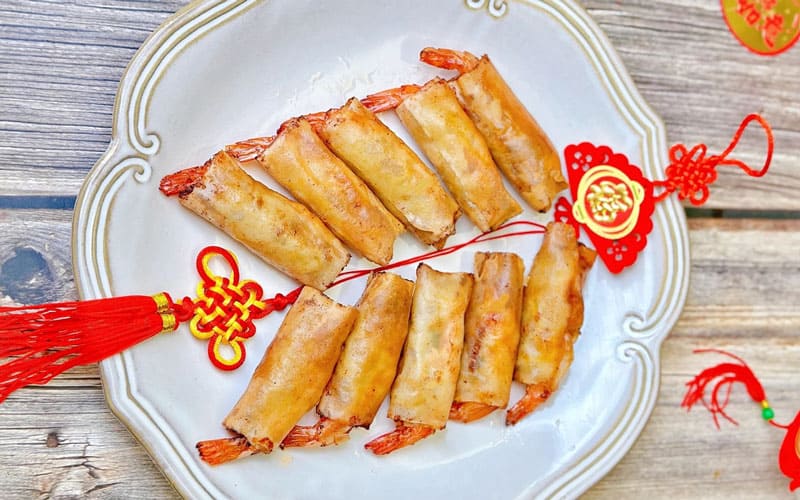
Chinese New Year Superstitions
There are many traditional superstitions of the Spring Festival. Most of the superstitions originated in ancient times and are still widely spread among Chinese people today. Here are some common Chinese New Year superstitions:
Don't break anything. Chinese New Year is the beginning of the coming year. Chinese people believe that if you accidentally break something during Chinese New Year, it will ruin your luck in the coming year. So during Chinese New Year, it's taboo to break things.
Don't sweep the floor or empty the garbage. Before Chinese New Year, every family cleans up their house and sweeps all the year's filth out of the house, which means saying goodbye to the old and welcoming the new. But you can’t sweep the floor and dump the garbage on the first day of the Chinese New Year, otherwise you will sweep away the blessings and good luck of the home.
Don't say unlucky words. Avoid saying any unlucky words with "death", "illness", "broken", "bad", etc., so as not to invite misfortune. You can say something auspicious during the Chinese New Year.
Don't eat porridge. It is believed that eating porridge brings poverty because it was the food of the poor in the past.
Don’t wash your clothes and hair. Chinese people believe that washing clothes on New Year’s Day of the Chinese lunar calendar will wash away the coming year's wealth and good fortune.
How to Say "Happy Chinese New Year" in Chinese
During the Spring Festival, people usually say “Happy New Year” in China. It is the easiest and most popular greeting. But do you know how to say Happy New Year in Chinese? Here are some common Chinese New Year wishes. You can say these words during New Year greetings, giving red pockets, parties, or any social occasion related to the Chinese New Year.
新年好
In Mandarin: xīn nián hǎo
In Cantonese: sun nin ho
新年快乐
In Mandarin: xīn nián kuài lè
In Cantonese: sun nin fai lok
The above two phrases are usually translated in English as “Happy Chinese New Year” or “Happy Spring Festival”. In addition, there are other Chinese blessing phrases that express best wishes.
恭喜发财
In Mandarin: gōng xǐ fā cái
In Cantonese: gong hei fat choy
In English: Wishing you prosperity!
大吉大利
In Mandarin: dà jí dà lì
In Cantonese: daai gat daai lei
In English: Wishing you good luck and fortune!
万事如意
In Mandarin: wàn shì rú yì
In Cantonese: maan si jyu ji
In English: Wishing everything goes as you wish!
Chinese New Year Greetings for 2026 Horse Year
2026 is the Year of the Horse. In addition to the generic Chinese New Year greetings. Chinese people also have some New Year wishes related to the zodiac animal of the year.
马年大吉
In Mandarin: mǎ nián dà jí
In English: Wishing you good luck in the Year of the Horse!
马年吉祥
In Mandarin: mǎ nián jí xiáng
In English: May the Year of the Horse be auspicious for you!
Why is Chinese New Year Celebrated?
Among the origin stories of the Chinese New Year, the most widely known is the legend of “Nian” (年). Once upon a time, there was a fierce monster called Nian. It came out at the end of each year to harm people and animals and destroy villages, which made people very fearful. Later, people found out that "Nian" was afraid of sound, red, and light. So, they scared away the monster by putting up red Spring Festival couplets and setting off firecrackers.
Besides, the Chinese also got together on Chinese New Year’s Eve, ate New Year’s Eve dinner, and stayed up until the New Year. They did these things to show their unity and courage and resist the onslaught of the monster.
Since then, people have followed these customs to celebrate the Chinese New Year at the end of each year. Gradually, these customs evolved into today's Chinese New Year celebrations.
Chinese New Year Celebrated in Other Regions and Countries
Chinese New Year is the most important festival in China. But because of the influence of China culture and the global distribution of Chinese immigrants, some other countries and regions in the world also celebrate Chinese New Year.
Singapore & Malaysia: There are large Chinese populations in Singapore and Malaysia. Chinese New Year is one of the public holidays in both countries.
Vietnam: The Chinese New Year in Vietnam is called Tet Nguyen Dan (aka Vietnamese New Year). It is a traditional festival in Vietnam and is celebrated all over the country.
Canada: In Canada's major cities, such as Toronto and Vancouver, Chinese New Year is celebrated with special events due to the large Chinese community.
America: In America, Chinese New Year will also be celebrated, especially in San Francisco, California, Chinatown in New York, etc.
Philippines: Although Chinese New Year is not a public holiday in the Philippines, the Chinese community in the Philippines will celebrate this festival. They retain Chinese New Year traditions.
Where to Celebrate Chinese New Year 2026 in China
Chinese New Year is a national holiday and is celebrated all over China. If you are planning a China culture tour, we suggest you consider the following popular places of celebration where you can immerse yourself in Chinese New Year culture.
1. Beijing
Traveling to Beijing during the Chinese New Year is a very good choice. Beijing is the capital of China, with rich cultural activities and traditional customs. During Chinese New Year, there are special exhibitions and events at the Forbidden City (also known as the Palace Museum). You can experience the atmosphere of the Royal New Year. Temple fairs in Beijing are one of the liveliest events during Chinese New Year, such as the Ditan Temple Fair and the Longtan Park Temple Fair. You can taste various snacks, buy handicrafts, and watch traditional performances.
2. Shanghai
Although Shanghai is a developed modern city, it still has a strong holiday atmosphere and abundant activities. The Lantern Fair in Yu Garden is one of the most famous events during Chinese New Year in Shanghai. You can appreciate beautiful festive lanterns. You can enjoy a variety of Shanghai snacks around the City God Temple. Nanjing Road Pedestrian Street is the shopping paradise of Shanghai, where you may find some special events during Chinese New Year.
3. Xi'an
Xi'an is one of the most important cities in ancient China. If you visit Xi'an during Chinese New Year, you can experience the charm of this thousand-year-old capital. It will hold a grand lantern show at the ancient Xi'an City Wall during Chinese New Year. You can admire lanterns with a variety of themes, including traditional stories, auspicious patterns, and modern art. During Chinese New Year, you can explore the Tang Dynasty-style commercial district at the Great Tang All Day Mall. There are various cultural performances, including court dances of the Tang Dynasty (618-709), folk performances, acrobatic performances, and so on. You will feel like you’re in the Tang Dynasty.
4. Hong Kong
You will experience a combination of modernity and tradition if you travel to Hong Kong during Chinese New Year. You can enjoy grand fireworks displays at Victoria Harbor. Chinese New Year float parade in Hong Kong is usually held on the first day of the Chinese New Year. The floats will parade along the main streets and show a variety of exciting performances. On the eve of Chinese New Year, there are Lunar New Year fairs held throughout Hong Kong. You can shop, taste delicious food, and watch performances.

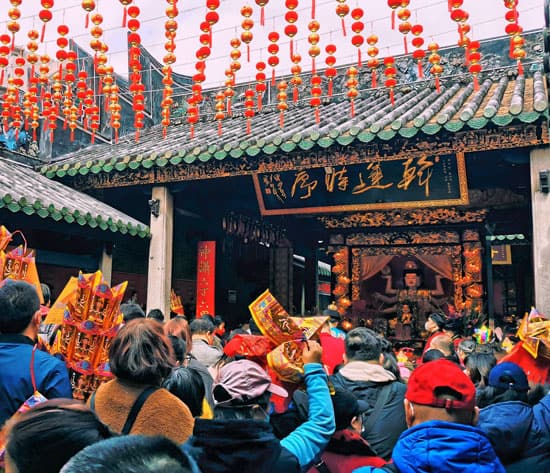
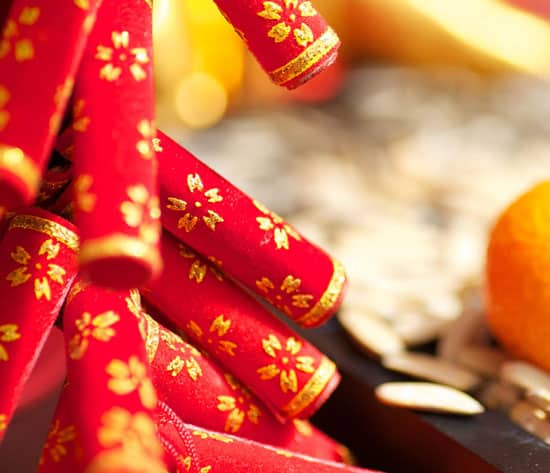
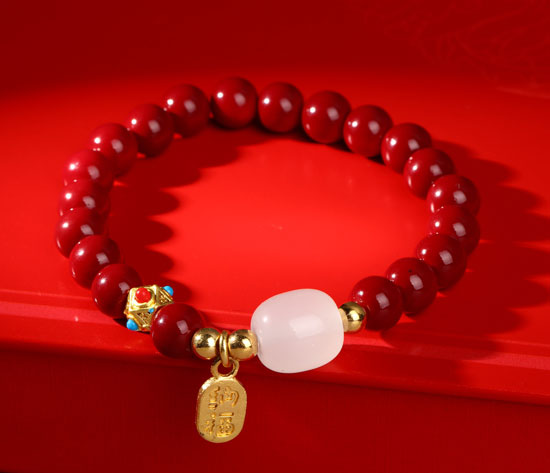
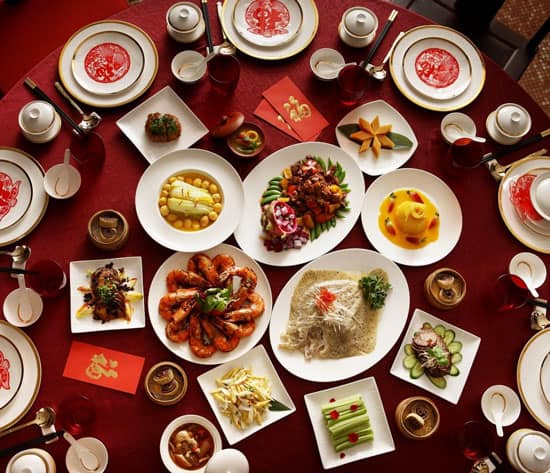
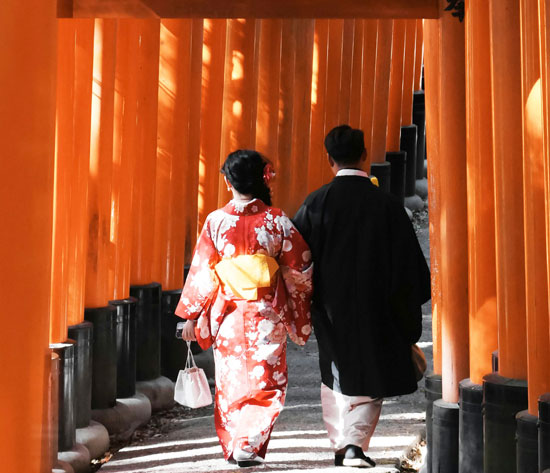
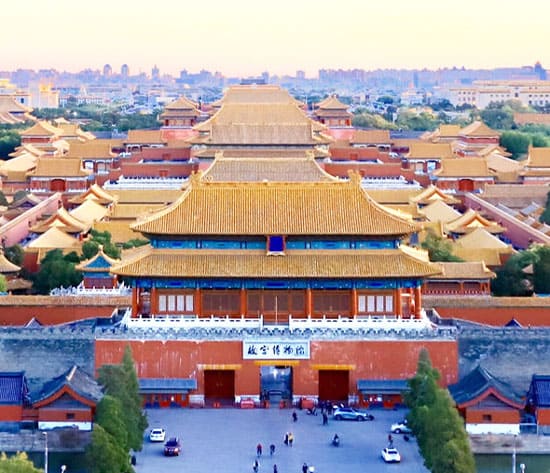
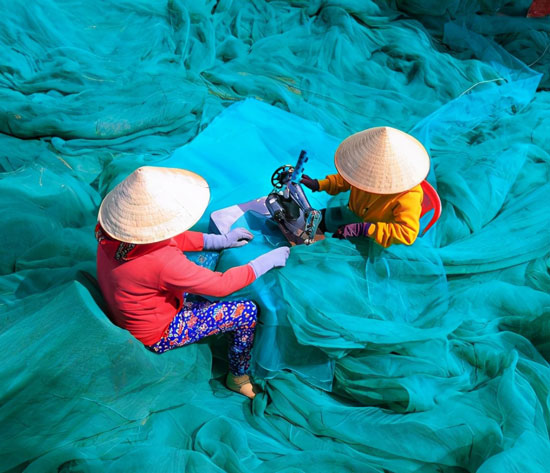

Have a Question?
You might see your comment appear on this page, but your email address and full name will not be published. Your personal information will remain confidential. Our Asia travel experts will get back to you as soon as possible. Required fields are marked *